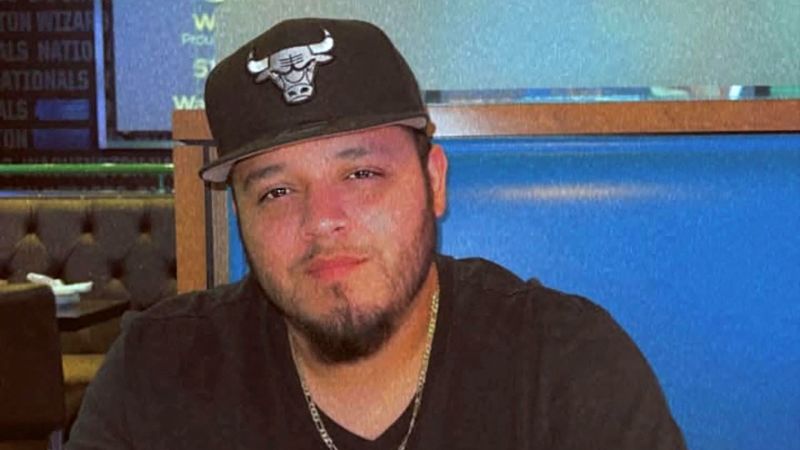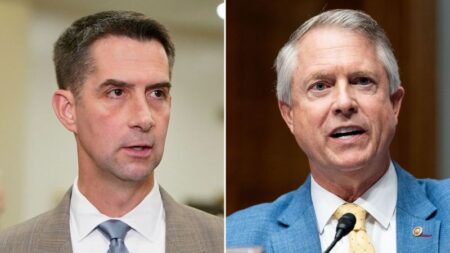The situation surrounding Kilmar Abrego Garcia, an undocumented immigrant from El Salvador, has become increasingly complex and fraught with legal implications. The Trump administration is now planning to deport him to a “third country,” according to recent statements from the Department of Homeland Security (DHS). This decision comes on the heels of a previous deportation attempt that mistakenly sent him back to El Salvador despite a protective order from an immigration judge.
During a brief court hearing on a Thursday, a lawyer from the Justice Department indicated that DHS will initiate removal proceedings against Abrego Garcia once he is returned to their custody. However, the lawyer did not specify a clear timeline for the deportation process, leaving both the courts and Abrego Garcia’s legal team in a state of uncertainty. Federal District Judge Paula Xinis of Maryland expressed concern about the vague timeline, questioning if his deportation could happen at any moment or if delays might extend over months.
Judge Xinis seemed reluctant to prevent the administration from carrying out a swift deportation, even though Abrego Garcia currently faces serious criminal charges that could be impacted by any sudden move to remove him from the U.S. The hearing unveiled a significant tension between the Trump administration’s DHS and the Justice Department, each seemingly holding differing positions on the appropriate next steps regarding Abrego Garcia.
Abrego Garcia’s legal representatives are apprehensive about the possibility that he might soon be deported to an unspecified country once he is released from criminal custody, which could be imminent. They maintain that the Trump administration’s previous deportation action to El Salvador was in violation of a 2019 order, which stated he could not be sent back to his home country due to existing dangers, including gang violence. Nonetheless, they acknowledge that this order does not prevent the government from attempting to send him to another country.
In an attempt to seek justice for Abrego Garcia, his legal team has requested Judge Xinis’s intervention to keep him in the United States. However, the judge conveyed uncertainty about her authority to prevent a deportation, particularly given Abrego Garcia’s immediate transfer to DHS custody after leaving Tennessee’s pre-trial detention facility.
The legal proceedings surrounding Abrego Garcia are intricate, as tensions persist between federal law enforcement agencies. Initially in Tennessee, Abrego Garcia has pleaded not guilty to serious charges related to human trafficking and smuggling. Following the hearing, a spokesperson for the Justice Department confirmed that federal prosecutors intend to try him in the U.S. for the charges he faces before any deportation occurs.
Federal officials have echoed a strong commitment to prosecute Abrego Garcia, with statements from the White House emphasizing that he will face the full weight of the law in America. Deputy Press Secretary Abigail Jackson explicitly stated that he would not evade accountability for the severe allegations brought against him. Meanwhile, concerns from Abrego Garcia’s attorneys about his potential deportation highlight the complexity of immigration law and the enforcement practices currently in flux.
As Abrego Garcia’s case progresses, the judiciary has called for more clarity. The Justice Department has not definitively addressed how it is managing the fears expressed by Avrego’s legal team, which expect that his deportation could occur following his transfer into immigration custody. Updates regarding his case are expected in the coming days as judges in both Tennessee and Maryland await information from the government.
As the situation develops, many questions loom over the future of Kilmar Abrego Garcia, his legal rights, and how the U.S. immigration system will handle his contested status. The ramifications of this case not only impact Abrego Garcia but also reflect broader tensions in immigration policy amidst ongoing legal challenges in the nation’s courts. The evolving landscape will be crucial to observe as stakeholders continue to navigate these sensitive issues of justice and deportation in America.











